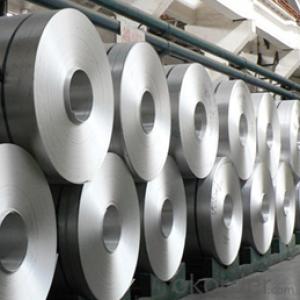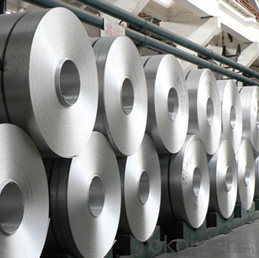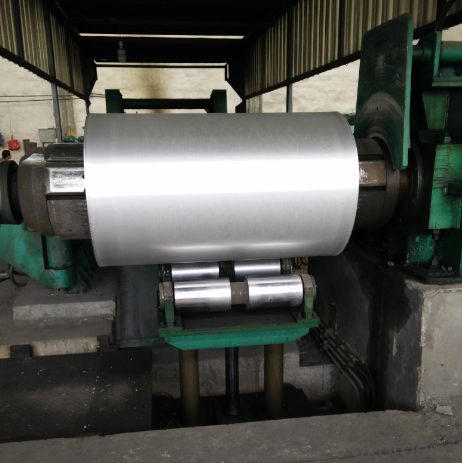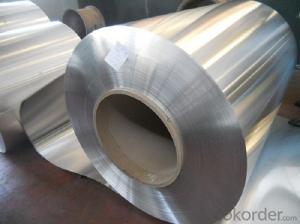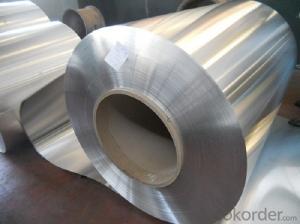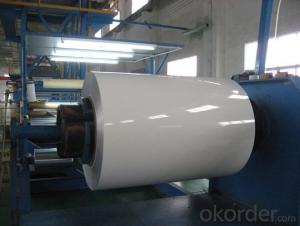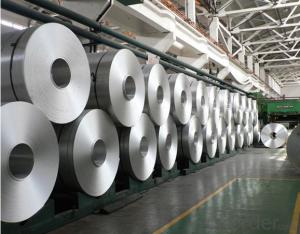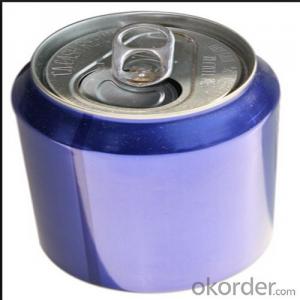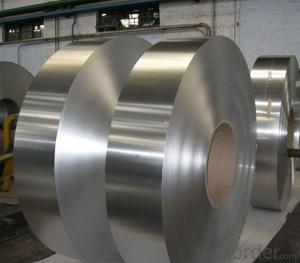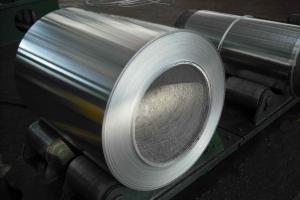020 Aluminum Coil for Casting to Thinner Coils - CC Aluminum Coil
- Loading Port:
- Shanghai
- Payment Terms:
- TT OR LC
- Min Order Qty:
- 150 m.t.
- Supply Capability:
- 20000 m.t./month
OKorder Service Pledge
OKorder Financial Service
You Might Also Like
CC Aluminum Coil for Casting to Thinner Coils
1.Structure of CC Aluminum Coil for Casting to Thinner Coils
CC Aluminum Coil for Casting to Thinner Coils is used in the factories that produce aluminum coil from 0.2mm to 6mm by thickness. Hot rolled y cold rolled son available. The thickness of CC Aluminum Coil for Casting to Thinner Coils is about 6-8mm. You can choose the alloys as your using and we will do our best to meet your requests.
2.Main Features of the CC Aluminum Coil for Casting to Thinner Coils
• Smooth surface
• High manufacturing accuracy
• High strength of extension and yield
• Low tolerance
• Strict quality control
• Well packaged
3. CC Aluminum Coil for Casting to Thinner Coils
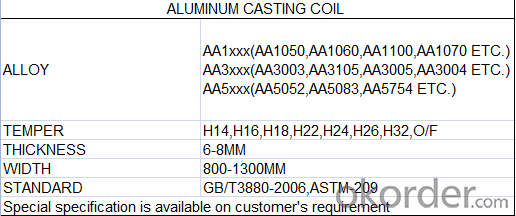
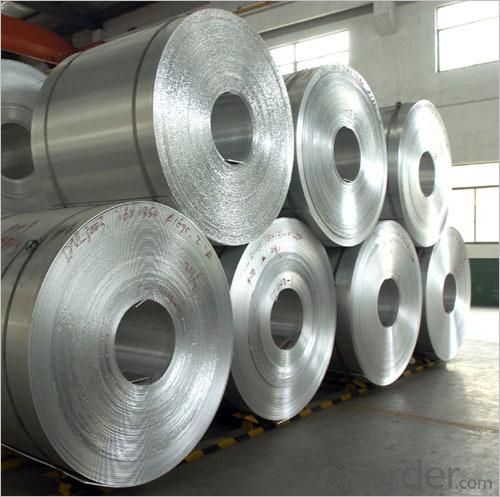
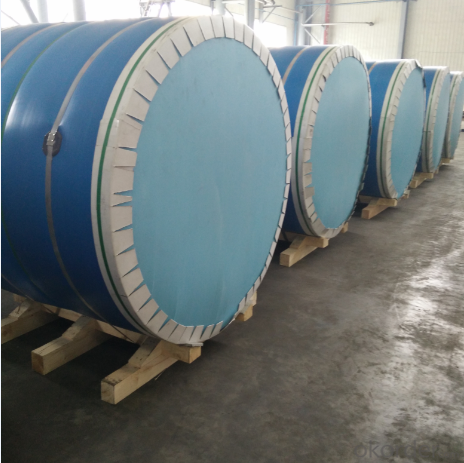
4. Production Process of CC Aluminum Coil for Casting to Thinner Coils
Cold Rolled
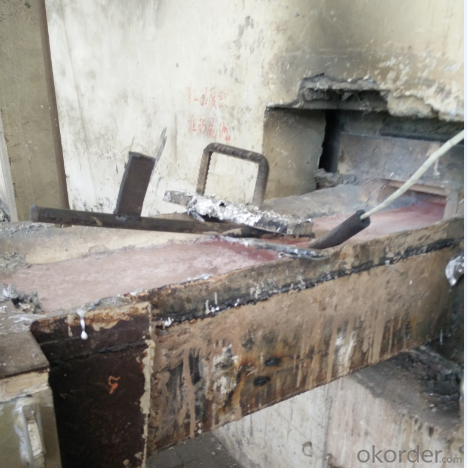
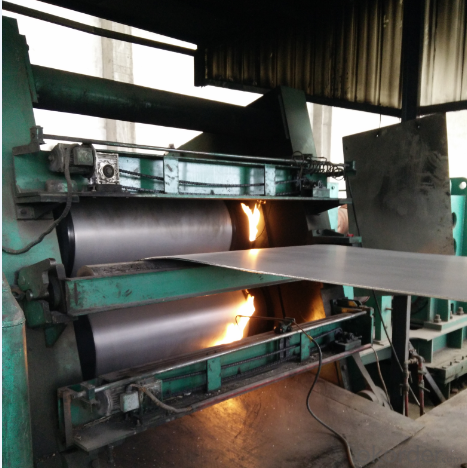
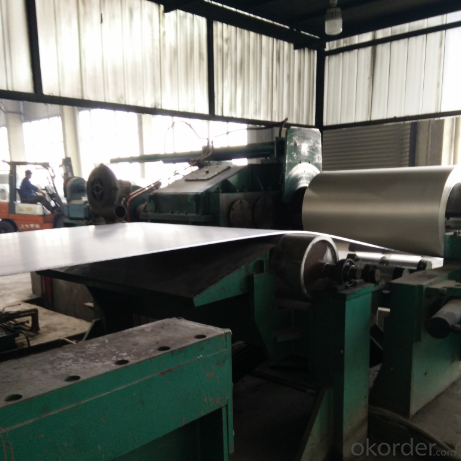
Hot rolled
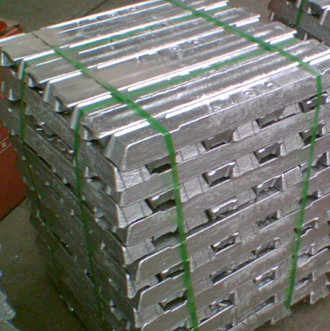
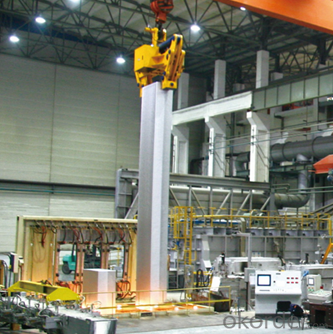
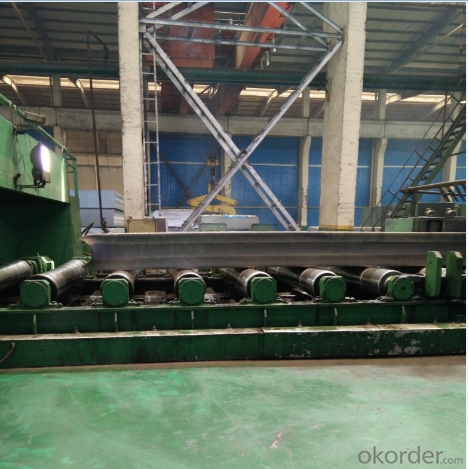
5.FAQ
We have organized several common questions for our clients,may help you sincerely:
① What is the MOQ of CC Aluminum Coil for Casting to Thinner Coils
Usually the MOQ is 150 tons, but we also can make solution according to clients’ situation.
②How about your company?
A world class manufacturer & supplier of aluminum coil and alloy blanks. Aluminum production base is comprised of 18 aluminum annealers, 10 coil and foil mills, 4 continuous production lines, 2 hot rolling production line and 3 prepainted lines.
Export 5000 tons per month to Asia, America and Middle East. Always do the best for our clients.
③Can you guarantee the quality of the products?
We are responsible for the quality of materials in a reasonable period of time to get a long-term cooperation with clients and we are glad to arrange and coordinate any third party inspection for you.
④What is the delivery time after purchase?
15 day with normal specification after receiving client’s deposit or correct LC
- Q:What’s the standard of tensile strength and ductility of aluminum coil 3003?
- Detailed description can help resolve problems quickly. Performance and status is a related. As aluminum coil is usually semi-hard, the tensile strength is greater than or equals 150, ductility is greater than or equals 12.
- Q:like i need a good slogan for aluminum its for a school project like for arsenic's is Arsenic's a sure fire way to deal with a rat, It works better than a mean old cat!
- Aluminum: Keeping stoners amazed for over 50 years!
- Q:Hi i need to know what will happen to the impact strength of aluminum 2024 reinforced with Silicon carbide is treated to cryogenic temperature (nearly -200C). Will impact strength increase or decrease. Also will the impact strength vary with respect to the percentage of Silicon carbide.
- Aluminum 2024 doesn't have a transition temperature, it absorbs about 18n-m impact strength (via charpy tests I ran three weeks ago at my College course). This was constant between -150?C to +150°C (liquid nitrogen to a furnace). This excerpt from wiki: Cutting tools In 1982 at the Oak Ridge National Laboratories, George Wei, Terry Tiegs, and Paul Becher discovered a composite of aluminium oxide and silicon carbide whiskers. This material proved to be exceptionally strong. Development of this laboratory-produced composite to a commercial product took only three years. In 1985, the first commercial cutting tools made from this alumina and silicon carbide whisker-reinforced composite were introduced by the Advanced Composite Materials Corporation (ACMC) and Greenleaf Corporation. Leads me to believe it depends on how you mix the material in would make a difference. Silicon Carbide and aluminum make very strong tools, but would make it more brittle. The ceramic in a metallic crystal lattice (metal is a crystalline structure) would allow more voids to coalesce leading to a brittle fracture, but the initial strength would be improved because of substitution dislocations in the crystal structure (it would be more rigid, stronger, but more prone to sudden failure). Silicon carbide has low thermal expansion coefficient compared to aluminum also so when it gets really cold the aluminum would contract around the particles increasing the strength, but again, reducing ductility and causing fractures to occur more rapidly. Anyways, very interesting, you should do a bit of research on your own after this as I gave you some good places to work from (and I'm sure plenty of words to look up ;D )
- Q:Can aluminum coils be used for electrical applications?
- Yes, aluminum coils can be used for electrical applications. Aluminum is a widely used material in the electrical industry due to its excellent conductivity, lightweight properties, and corrosion resistance. Aluminum coils are commonly used in various electrical applications such as transformers, motors, generators, and coils for inductors and solenoids. They offer advantages such as high thermal conductivity and low eddy current losses, making them efficient in transferring and distributing electrical power. Additionally, aluminum coils are cost-effective compared to copper coils, making them a preferred choice for many electrical applications. However, it is important to note that aluminum has a lower electrical conductivity compared to copper, so the coil design and dimensions may need to be adjusted accordingly to ensure optimal performance.
- Q:What are the factors that determine the price of aluminum coils?
- There are several factors that determine the price of aluminum coils. One of the main factors is the cost of raw materials. The price of aluminum is influenced by factors such as supply and demand, global economic conditions, and production costs. Fluctuations in these factors can directly impact the price of aluminum coils. Another factor that determines the price of aluminum coils is the manufacturing process. The cost of processing aluminum into coils involves various expenses such as labor, energy, and equipment. The complexity of the manufacturing process and the efficiency of the production line can affect the overall cost, which in turn influences the price of aluminum coils. Market conditions also play a crucial role in determining the price of aluminum coils. Factors such as market competition, industry trends, and geographic location can impact pricing. For instance, if there is a high demand for aluminum coils in a particular region but limited supply, the price may increase due to the scarcity of the product. Additionally, transportation and logistics costs contribute to the final price of aluminum coils. The distance between the manufacturing facility and the customer, as well as the mode of transportation, can affect the shipping expenses. These costs are typically factored into the overall price of the coils. Lastly, government policies and regulations can influence the price of aluminum coils. Tariffs, import taxes, and trade agreements may impact the cost of importing or exporting aluminum coils, thereby affecting the final price. In conclusion, the price of aluminum coils is determined by various factors including the cost of raw materials, manufacturing processes, market conditions, transportation costs, and government policies. It is essential for manufacturers and consumers to consider these factors when analyzing and forecasting the price of aluminum coils.
- Q:What are the common sizes of aluminum coils?
- The common sizes of aluminum coils can vary depending on the specific industry and application. However, some commonly used sizes include widths ranging from 36 inches to 72 inches, with thicknesses typically ranging from 0.019 inches to 0.125 inches.
- Q:I don't know, I see a metal is a metal. I understand that a bike shop bike has better service and the bike has better components. Yet I just feel the frame of a $500 bike store bike and a $100 bike from Walmart using aluminum is the same. It's like people charging $100 for audio/video cables when a $1 no-name cable works the same for tv. Is this the same marketing ploy in the bike industry?I see a Mongoose bike for $500 to $1000 on their website, yet I see one with the same frame metal at Walmart/Kmart for only $100. Mongoose is a reputable name. What gives?What do you think? Is the metal quality in a $500 aluminum bike shop bike the same as a $100 aluminum department store bike?
- Aluminum Mountain Bike
- Q:What should pay attention to transporting aluminum coil?
- You must ensure the good property of the aluminum coil.
- Q:My front door is scraping the aluminum frame door jam thing on the bottom. Also underneith the door itself it seems like there is a huge aluminum device covering the whole bottom of it and an aluminum weather stipper built into that. Is my only option to have the door pulled off. Or could I maybe grind of file down the aluminum on the bottom?
- roger has best answer so far ...when any door starts to rub on bottom you should check the frame is still well fixed ..then the hinges ...the top one may be loose ..a lot of these doors have adjusters on the hinges ..however if the frame is ok ..the top hinges are tight ..and no adjusters ..pack out the bottom hinge ..by removing screws to bottom hinge ..adding a packer ...it can be cardboard ..you will be lifting door off the threshold ..might need two packers ..
- Q:Are aluminum coils easy to bend and shape?
- Yes, aluminum coils are relatively easy to bend and shape. Aluminum is a malleable metal, which means it can be easily deformed under compression without breaking. This property makes it highly suitable for shaping and forming into various shapes and sizes. Additionally, aluminum coils can be manipulated using different techniques such as rolling, bending, or pressing, allowing for a wide range of applications in industries such as construction, automotive, and manufacturing. However, the ease of bending and shaping aluminum coils may also depend on the specific alloy and thickness of the coil. Thicker coils may require more force and specialized equipment for shaping, while certain alloys may have different levels of malleability. Overall, aluminum coils offer a versatile and relatively easy-to-work-with material for bending and shaping purposes.
1. Manufacturer Overview |
|
|---|---|
| Location | |
| Year Established | |
| Annual Output Value | |
| Main Markets | |
| Company Certifications | |
2. Manufacturer Certificates |
|
|---|---|
| a) Certification Name | |
| Range | |
| Reference | |
| Validity Period | |
3. Manufacturer Capability |
|
|---|---|
| a)Trade Capacity | |
| Nearest Port | |
| Export Percentage | |
| No.of Employees in Trade Department | |
| Language Spoken: | |
| b)Factory Information | |
| Factory Size: | |
| No. of Production Lines | |
| Contract Manufacturing | |
| Product Price Range | |
Send your message to us
020 Aluminum Coil for Casting to Thinner Coils - CC Aluminum Coil
- Loading Port:
- Shanghai
- Payment Terms:
- TT OR LC
- Min Order Qty:
- 150 m.t.
- Supply Capability:
- 20000 m.t./month
OKorder Service Pledge
OKorder Financial Service
Similar products
Hot products
Hot Searches
Related keywords
